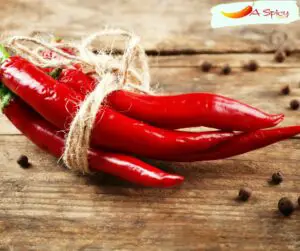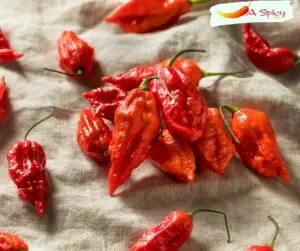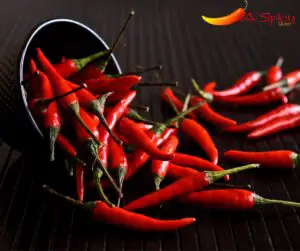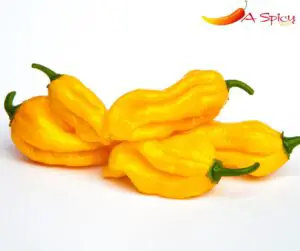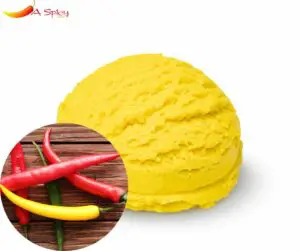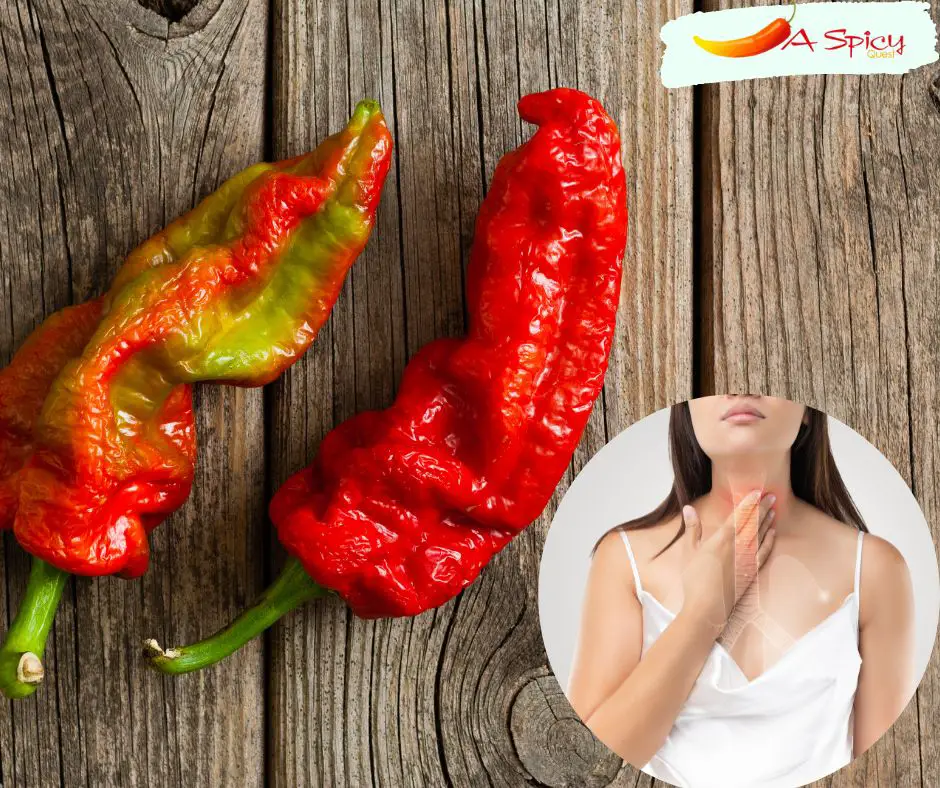
If you’re a fan of hot sauce, then you’ve likely heard of ghost peppers. These super-hot peppers are often used as a seasoning or garnish in spicy dishes because they have an intense heat and flavor profile. Though the ghost pepper is named for its ghostly white appearance, it doesn’t actually look like anything spooky.
It actually looks like any other pepper! But what if I told you that these super-spicy peppers could burn holes in your esophagus? It sounds scary, but is it possible? We’re going to break down this wild rumor so you can decide whether or not to make some ghost pepper hot sauce tonight.
Can a Ghost Pepper Damage Your Esophagus?
Can Ghost Pepper burn your esophagus? Yes, that’s right: hot peppers can certainly burn the esophagus. The esophagus is a tube that connects your mouth to your stomach and it’s not designed to handle anything so spicy as a ghost pepper.
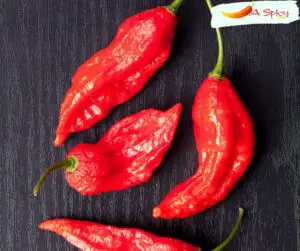
If you are eating a ghost pepper or any other super-spicy chile pepper and experience pain in your chest, it might be because of the burning of the esophagus. Vomiting and difficulty swallowing may also accompany this type of burning sensation.
Can Hot Peppers Burn a Hole in Your Stomach?
You’re probably familiar with Ghost Peppers, the hottest peppers in the world. So can this super high-heat pepper burn a hole through your esophagus and stomach? The short answer is “Probably.” It could kill you.
The problem with thinking that you might die or it can burn a hole in your stomach from eating too much spicy food is that there are so many variables involved. For example: how much was ingested at once? Did the person eat something else really spicy beforehand? Are there other health issues involved? Did they eat the ghost pepper raw or cooked first?
Can Ghost Pepper Be Fatal?
Yes, ghost peppers can be fatal if ingested in large quantities. The ghost pepper has a Scoville rating of 1.04 million SHU (a measure of spicy heat), which means even a small amount will leave you with a sore throat and mouth. The ghost pepper is named such because it’s so hot that it’s nearly impossible to eat more than one at a time; even the seeds are extremely spicy.
What Are the Side Effects of Ghost Pepper?
1. Heartburn
The ghost pepper has been known to cause a burning sensation in the mouth, but it can also lead to heartburn and inflammation of the esophagus. Some people who eat ghost peppers claim that they are unable to breathe when they do so, though this is rare.
2. Nausea and Vomiting
Ghost peppers are so hot that they can burn a hole in your esophagus. If you eat one, you might experience nausea and vomiting. This is a common side effect of eating ghost peppers and it’s not usually dangerous.
If you feel nauseous after eating ghost peppers, you should take some over-the-counter medication to help relieve the symptoms. However, if it doesn’t go away or gets worse after taking medication for a few days, then you should see a doctor.
3. Abdominal Pain
Abdominal pain is a common side effect of eating ghost peppers, and it can be caused by a number of things. Gas, indigestion, heartburn, or ulcers are all symptoms that might produce this symptom in your body.
While these conditions may not be serious enough to require medical attention at first glance, you should consult your doctor if the pain persists longer than 24 hours or becomes severe. If you have any concerns about your health after consuming ghost peppers—or any other spicy food—please contact your doctor immediately!
4. Diarrhea
The body’s reaction to eating ghost peppers can cause diarrhea. This isn’t a particularly uncommon side effect, and it does not mean that something is wrong with your health.
Diarrhea can be caused by a wide variety of factors, including eating too much food at once or consuming it too quickly. It can also happen when you eat hot peppers like the ghost pepper (or any other type of spicy pepper), due to their high levels of capsaicin, which causes irritation in the digestive tract.
While some people may find this uncomfortable, it is not dangerous and will pass quickly if you simply let your body do its thing for a few hours until things return to normal.
5. Swelling of The Face, Lips, Tongue, and Throat
Swelling of the face, lips, tongue, and throat is a common symptom of an allergic reaction. In addition to ghost peppers, other ingredients in chili peppers can cause this reaction as well.
In rare cases, swelling can be caused by eating too many ghost peppers.
What Helps After Eating a Ghost Pepper?
So, you’ve bitten into a ghost pepper and you’re not sure what to do. You’re wondering if eating milk or yogurt will help. The answer is yes, it will! Milk and yogurt are high in fat content, so they’ll be able to coat your esophagus and relieve some of the burning sensations.
The next thing you can try is eating ice cream—yes, that’s right: ice cream. This will work because it’s cold (and therefore numbing) on top of having lots of fat content (like milk). It also helps with any inflammation or injuries in the mouth caused by biting into the pepper.
Are Ghost Peppers Good for Your Heart?
You’d be surprised to know that ghost peppers are really good for your heart. In fact, they’re one of the most nutritious foods you can eat.
Ghost peppers are rich in vitamins A and C, which are key vitamins for keeping your immune system strong and healthy. These vitamins also help reduce inflammation throughout the body and promote proper skin health, so they’re great if you have dry skin or acne.
But what makes ghost peppers especially great for our hearts is capsaicin, a chemical compound we’ve already discussed that gives spicy food its kick. Capsaicin has been shown to reduce cholesterol levels by as much as 20-30%—which means it could help prevent heart disease.
Can Ghost Peppers Cause Ulcers?
In short, no. While ghost peppers are known to cause heartburn and other digestive problems, they’re not specifically known to cause ulcers.
Ulcers are caused by bacteria in your stomach and duodenum (the first part of your small intestine). They can be treated with antibiotics and antacids that reduce stomach acid levels.
Stress, spicy food, alcohol consumption (especially beer), hot drinks, or foods like coffee or tea can make ulcers worse because they irritate the lining of the gastrointestinal tract and make it more susceptible to damage from gastric acids.
Conclusion
If you’re wondering whether ghost peppers can burn a hole in your esophagus, the answer is yes. They can cause stomach ulcers if you eat them without chewing them and if you eat too many of them at once.
They are also known to cause nausea and vomiting as well as diarrhea in some people who eat them regularly or occasionally. If you don’t want these side effects, make sure that when eating hot foods like ghost peppers, do so slowly, and eat just a few so that they won’t burn a hole through your esophagus.

